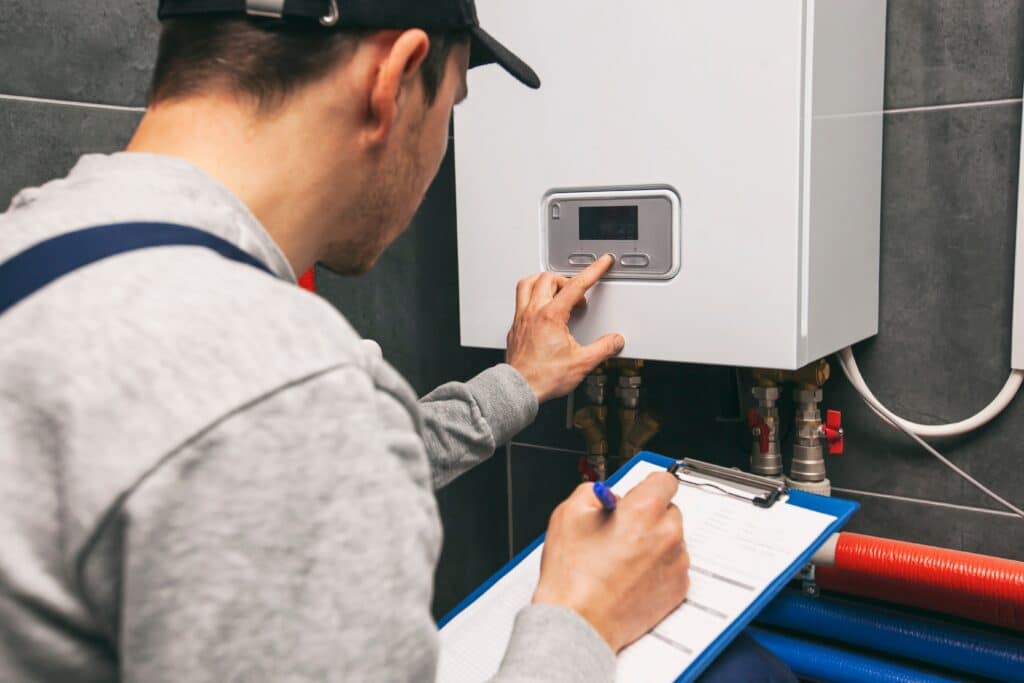What paperwork do I need to sell my house?
Thinking about selling your home? It’s a big decision and one you cannot take lightly. Once you’ve decided to move into a new property, there are many things you must do before you can legally sell your home.
Several documents are required, by law, to be filled in and provided to the buyer’s solicitor before the sale can be completed, such as an Energy Performance Certificate (EPC), a Gas Safety certificate, a Property Information Form, and much more.
To find out everything about the right documents you need to sell your house, continue reading this guide.

Required paperwork to sell your house
To ensure your home selling process can go through smoothly, you must provide the required paperwork for your solicitor.
So, what do you need?
Proof of identity
Estate agents, legal representatives, and mortgage lenders will all require copies proving you are who you say you are.
They’ll require proof of identity – a utility bill, bank statement, passport or driving licence – and proof of address, while online checks may be available which saves the hassle (and time) of taking original documents to a solicitor.
Land Registry title documents
Land Registry documents – or property title deeds – prove that you are the legal owner of the property in question.
You will have received a copy of this document when you purchased the home. If you cannot find your own, check if the mortgage lender has a copy.
New copies can be requested from the Land Registry for just £7.
During the 1980s, the UK government declared that all homes and land must be registered, but there are still around 15% not registered. This can make the process a little trickier as you’ll need to prove you’re the legal owner; specialist conveyancing solicitors can help with this.

Fittings and contents form
You’ll also be required to provide a fittings and contents form for the buyer.
This lets them know what’s included and what’s not in the house sale, including things like kitchen appliances, furniture, curtains, etc.
Whatever you want to leave in the house, you must inform the buyer. This way, they’ll know exactly what they’ll need to purchase before moving in. For example, if they know you’re leaving a couch in the living room, they know they have a little more time to arrange new furniture.
Energy Performance Certificate (EPC)
You must also provide an Energy Performance Certificate for the new buyer to prove how energy efficient your home is.
The EPC is a vital tool in property transactions because it provides valuable information about a building’s energy efficiency.
Read our blog on the importance of an EPC when selling a home.
Leasehold documents
If your home is a leasehold property then you must find, and provide, the leasehold information pack.
When marketing your property to prospective buyers, your managing agent will set out how many years are left on the lease, the current ground rent, and any service charges and planned increases. Your lease will explain all of this information so you must find it.
The leasehold property information form is imperative for buyers because a mortgage company is unlikely to cover shorter leases, less than 80 years.
If your lease is as low as this, it can create problems when attempting to sell the property.
New build warranties
For properties under 10 years old, you should still have a valid new-build warranty.
This will provide details on the type of structural defects that are financially covered, so the buyer needs to know.
When you purchased your home, you will have received your new-build warranty document.

Gas checks completed by a Gas Safe registered engineer
Another essential step in the selling process is proving to the buyer and their solicitor that the boiler and property are safe. To do this, you must obtain a Gas Safety Certificate. While it’s not legally required when selling your home, it at least shows the buyer that the property is safe and has been checked and signed off by an expert.
Electrical checks
If you’ve altered any wiring in your home since January 2005, you’re legally required to obtain a certificate that’s known as a ‘Part P Building Regulation Certificate’.
You must ensure this is ready for your solicitor to pass to the buyer, who will then be aware of all the changes.
It’s also a good idea to obtain an Electrical Safety Certificate to give the property sale the best chance possible of moving smoothly.
FENSA or CERTASS certificates for windows
If you’ve replaced any windows while you’ve lived in the property, you must provide a FENSA certificate or a CERTASS certificate, which both prove that the windows installed comply with building regulations.
If your installation wasn’t carried out by an approved window fitter, or you cannot find the certificate, you might need to pay for indemnity insurance for the property’s new owner.
You can search for certificates on the FENSA and CERTASS websites.
Planning permissions and Building Regulation certificates
Similarly, if you’ve made any changes to the property, such as an extension or adding a conservatory, you must possess the proper documentation.
You’ll need to provide copies of planning permissions, Building Regulation certificates and approvals.
Guarantees and other warranties
If you’ve ever had any other work done on your property – however large or small – you should have kept all documentation, such as receipts and invoices.
These are useful to include as part of the documents relating to the house sale, as they inform the buyer of everything that’s going on with the property.

Choose a reliable team of conveyancing solicitors
Are you in need of a highly qualified conveyancing solicitor to sell your house? If so, we can help!
At GD Property Solicitors, we’ve helped people all over the UK sell their homes, helping them deliver the right documentation to the buyer’s party.
If you’d like our expert team of conveyancing solicitors in Manchester and beyond to help you sell your house, contact us today. Our friendly team will be happy to talk through your situation.
